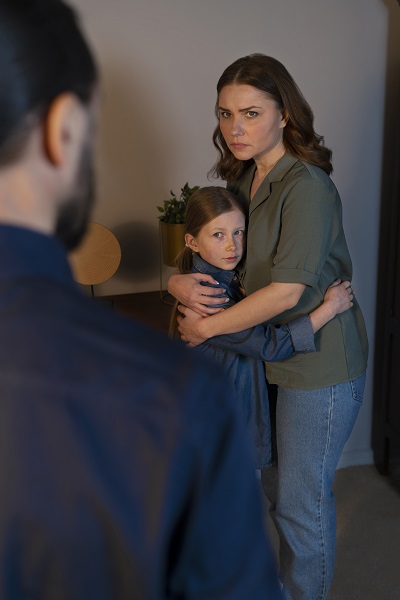
In the picturesque city of Cairns, Queensland, nestled along the northeastern coast of Australia, family dynamics can sometimes become complex and challenging. From issues surrounding divorce, custody battles, property settlements, and parenting arrangements, families often find themselves in the midst of emotionally charged situations that require delicate handling. In such instances, family law mediation emerges as a vital tool for resolution, providing a structured and supportive environment for parties to negotiate and find common ground. In this blog, we’ll explore the nuances of family law mediation in Cairns, delving into its significance, process, and impact on families in the region.
Understanding Family Law Mediation

What is Family Law Mediation?
Family law mediation is a form of alternative dispute resolution (ADR) where parties involved in family law disputes work with a neutral third party, known as a mediator, to reach mutually acceptable agreements. Unlike traditional court proceedings, which can be adversarial and lengthy, mediation fosters open communication and collaboration, aiming to achieve outcomes that are in the best interests of all parties involved, especially children.
Key Principles of Family Law Mediation:
- Voluntary Participation: Participation in mediation is voluntary, and parties must willingly engage in the process.
- Confidentiality: Mediation sessions are confidential, creating a safe space for open and honest dialogue.
- Impartiality: The mediator remains neutral and impartial, facilitating discussions without taking sides.
- Empowerment: Mediation empowers parties to make informed decisions regarding their family matters, rather than having outcomes imposed upon them by a judge.
- Focus on the Best Interests of Children: Particularly in cases involving children, the primary focus of mediation is to ensure arrangements that prioritise the well-being and interests of the children.
The Process of Family Law Mediation in Cairns
Initiating the Process:
Family law mediation in Cairns typically begins with one or both parties expressing a desire to resolve their dispute through mediation. This could be initiated voluntarily by the parties themselves or be court-ordered as part of legal proceedings. Once both parties agree to participate, they select a qualified and experienced mediator to facilitate the process.
Preparation and Initial Meeting:
Before the mediation session, the mediator typically conducts individual meetings or discussions with each party to understand their perspectives, concerns, and desired outcomes. These meetings or discussions help the mediator prepare for the joint mediation session and establish rapport with each party, fostering trust and confidence in the process.
Joint Mediation Sessions:
During the joint mediation sessions, parties come together with the mediator to discuss their issues, explore potential solutions, and negotiate agreements. The mediator employs various techniques to facilitate communication, manage emotions, and guide the conversation towards productive outcomes. This may involve identifying common interests, clarifying misunderstandings, and generating creative solutions that meet the needs of all parties involved. In some situations it is appropriate for the joint sessions to take place with the parties being in separate rooms.
Drafting Agreements:
If parties reach agreements during mediation, the mediator can assist in drafting legally binding documents outlining the terms of the agreement. These agreements may cover a range of issues, including parenting arrangements, child support, spousal maintenance, division of property, and any other relevant matters. Parties are encouraged to seek independent legal advice before finalising and signing the agreements to ensure they fully understand their rights and obligations.
Follow-Up and Implementation:
After reaching agreements, parties may require ongoing support to implement and adhere to the terms outlined in their agreements. The mediator may provide follow-up sessions or referrals to other professionals, such as family counsellors or legal advisors, to facilitate the implementation process and address any emerging issues or concerns.
The Significance of Family Law Mediation in Cairns
Preserving Relationships:

One of the significant advantages of family law mediation is its potential to preserve relationships, particularly in cases involving ongoing co-parenting responsibilities. By fostering constructive dialogue and mutual respect, mediation can help parties navigate conflicts while maintaining effective communication and cooperation for the well-being of their children.
Cost-Effective and Timely Resolution:
Compared to traditional court proceedings, which can be costly and time-consuming, mediation offers a more cost-effective and timely means of resolving family disputes. By avoiding lengthy litigation processes and court appearances, parties can save both time and money while achieving outcomes tailored to their unique circumstances.
Empowerment and Control:
Mediation empowers parties to retain control over the outcome of their dispute, rather than relinquishing decision-making authority to a judge. This sense of empowerment can be particularly valuable in family matters, where parties are intimately involved in the issues at hand and are best positioned to determine solutions that align with their needs and interests.
Reduced Emotional Stress:
The emotional toll of family disputes can be significant, impacting the mental well-being of all parties involved, including children. Mediation offers a less adversarial and confrontational approach, reducing the emotional stress associated with traditional litigation and promoting constructive dialogue and problem-solving.
In Cairns, Queensland, where family dynamics can be complex and multifaceted, family law mediation emerges as a beacon of hope for families navigating challenging circumstances. By providing a supportive and structured environment for negotiation and resolution, mediation empowers parties to address their issues collaboratively, preserve relationships, and prioritise the best interests of children. As families in Cairns continue to embrace the principles and process of mediation, they pave the way for healthier and more harmonious futures, grounded in mutual respect, understanding, and cooperation.
Need help?
Contact the Brisbane or Cairns family lawyer team at James Noble Law today for a FREE, no-obligation 20-minute consultation. To schedule an appointment with one of our Qualified and experienced Family lawyers in Brisbane or Cairns.
Find us on Google Maps:



You may also like to know more information about the


